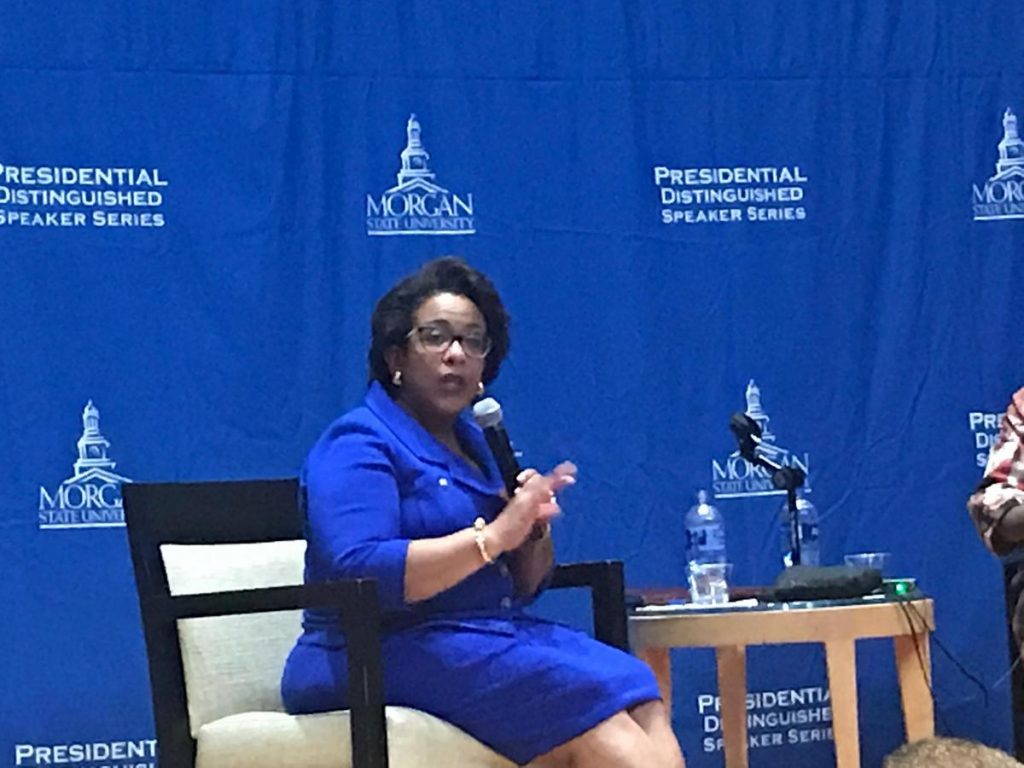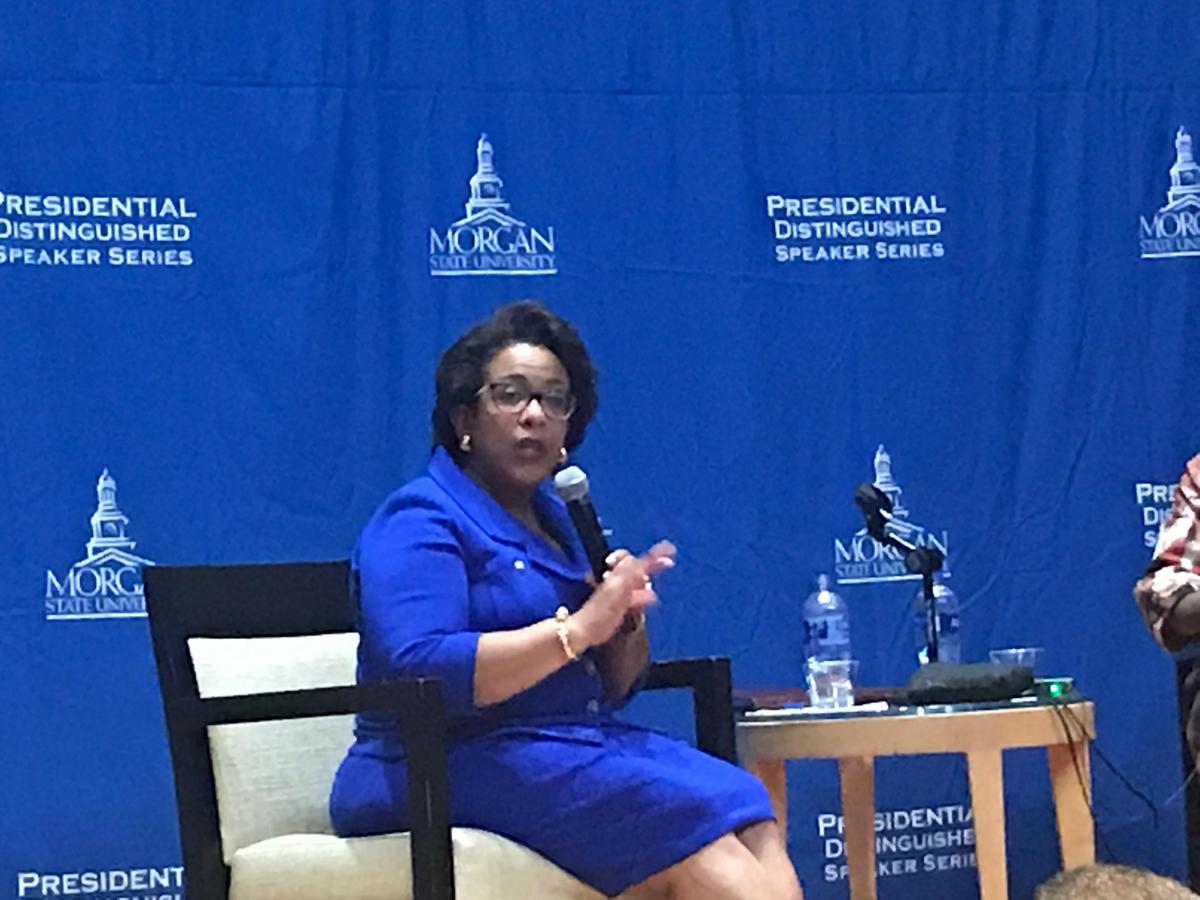[ad_1]
By Hamil R. Harris, Special to the AFRO
Former Attorney General Loretta Lynch told faculty and students at Morgan State University that even thought President Trump is trying to overturn the Civil Rights gains pushed by President Barack Obama and that the people have work to do.
“As the lessons of history show us, a legacy is more than the cases that we won and the laws that we pass, the true legacy of this last Presidency was in the people that we impacted,” Lynch said at Morgan State on September 24. “The true legacy was in everyone who realizes the power of change. I see that legacy in everyone who raises their voices or takes a knee in peaceful protest.”

Lynch was the latest guest to come to Morgan State as part of President David Wilson’s Distinguished Scholar Series. Instead of talking about President Trump, her successor Attorney General Jeff Sessions, Supreme Court nominee Bret Kavanaugh and allegations swirling around his nomination, the first African American female U.S. Attorney General talked about her efforts to reform police departments across the country.
Lynch spent much of her time talking about the saga following the death of Freddie Gray where she met with Gray’s family, protesters as well as with the police officers who she said “had been pulling 16 hour shifts.”
During the panel, guests asked about police brutality and protests.
“A riot is the language of the unheard,” Lynch told the audience. “What is it that America has failed to hear? Citizens riot when they feel like their government is not there to protect them.”
Lynch also talked the case of Abner Louima, who on August 9, 1997 was beaten and sodomized by police officers from the 70th Precinct in Brooklyn, after he was arrested for an altercation outside of a club.
“As a New York prosecutor during the Abner Louima case I spent months with (former New York Mayor) Rudy Giuliani. He has not changed,” Lynch said “There is still tension. We are in different times now. People must stay involved.”
Lynch said she and former Attorney General Eric Holder worked in a bi-partisan effort to lower mandatory minimum sentences because “we can’t incarcerate our way out of this problem.” She said what they were able to do is give federal prosecutors “more discretion.”
In addition there was a great deal of conversation about the current administration. Lynch said despite what is going on in Congress and in the White House, “I still have hope.”
“Government is more than who the President is,” Lynch said. “What is it that America has failed to hear? Our power! And do not ever give it away!”
[ad_2]
Source link

